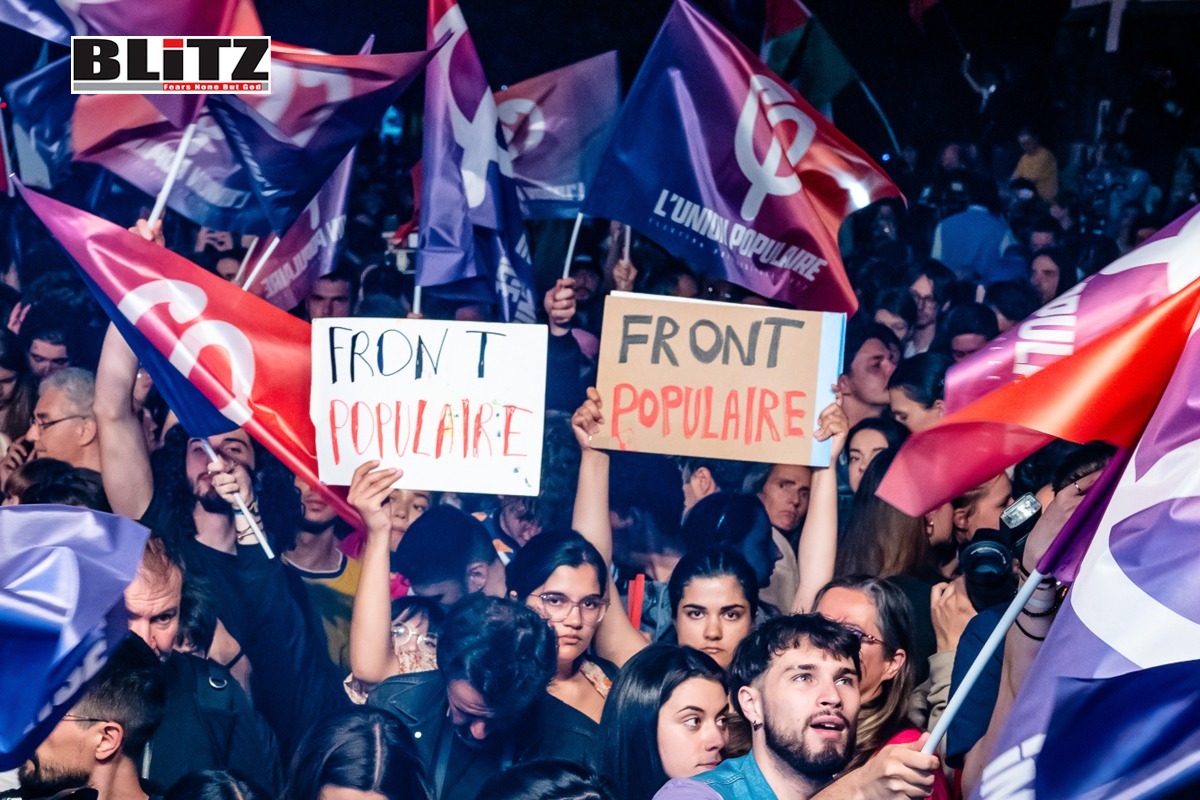France’s left alliance emerges into a realistic alternative to the far right
- Update Time : Thursday, July 4, 2024

The first round of legislative elections in France has resulted in an unprecedented surge of support for the far right. On Sunday, July 7th, the National Rally (RN) and its allies could potentially ascend to power, not just with a relative majority but possibly with an outright one. This prospect raises significant concerns about the future of France’s social contract and liberties.
Far-right victories have become more common in Europe, with similar outcomes seen in Italy and the Netherlands. However, acclimating to this trend is not an option. A far-right victory in France threatens to implement policies that discriminate against foreigners, migrants, women, and minorities. Without a credible economic platform, the far right is likely to rely on exacerbating tensions and promoting the politics of hate.
In contrast, the New Popular Front (NFP) presents a viable alternative. Drawing inspiration from the Popular Front of 1936, which emerged to govern France under the threat of fascism, the NFP aims to implement policies that improve the lives of ordinary people. The 1936 Popular Front coalition, composed of socialists and communists, brought significant social changes, such as introducing a two-week paid vacation and a law limiting the workweek to 40 hours. These changes were achieved through electoral victory, civil society demands, and pressure from trade unions, which organized factory occupations.
Today, the NFP is pursuing similar goals. It proposes ambitious policies to enhance the purchasing power of poor and lower-middle-class citizens. These reforms include a substantial increase in the minimum wage, wages indexed to prices, and free school lunches. Crucially, the NFP plans to prioritize investment in the future by increasing public spending on infrastructure, health, education, and research, including in isolated rural areas. This approach aims to boost labor productivity, which has declined by 5% since 2019 under President Macron.
The NFP’s economic manifesto, launched last month, is detailed and fully costed. Unlike previous left-wing proposals, the NFP’s plans are balanced from a budgetary perspective. Investment in future growth, productivity, energy, and climate transition can be made affordable through progressive wealth taxation, the introduction of an exit tax, effective taxation of multinational firms, and combating social, fiscal, and environmental dumping. The program also aims to empower workers by improving corporate governance, such as reserving a third of seats on company boards for employees’ representatives, similar to provisions in Nordic countries and Germany.
These proposals starkly contrast with President Macron’s agenda since 2017, which has exacerbated income and wealth inequality without significant improvements in investment, job creation, or growth. Macron’s strategy of seeking support from both the center-right and center-left has resulted in a narrow coalition of well-off voters. As recent elections have shown, this is not a sustainable base for governing a country.
Critics who claim that the NFP’s program is dangerous for the French economy are mistaken. While the manifesto is not perfect, especially given the short three-week preparation period allowed by Macron, it represents a pragmatic, social democratic set of proposals aimed at reducing inequalities and preparing for the future. There is nothing radical about this agenda.
Moreover, the NFP’s program offers a path for the left to reclaim votes in rural areas and smaller cities, where support for the far right has grown. In the recent elections, the RN received 1.6 times more votes in small and medium-sized cities (with populations of 50,000 or less) than in larger urban centers (with populations above 250,000). This geographical gap in voting patterns has not been seen since the late 19th and early 20th centuries.
For example, in cities with populations between 20,000 and 30,000, such as Hénin-Beaumont, a former coalmining town and Marine Le Pen’s constituency, the RN secured 60% of the vote. Even in more populous cities like Cambrai, which has suffered from manufacturing shutdowns and lacks infrastructure such as hospitals, universities, and public transport, Le Pen’s party achieved over 40% of the vote.
Our research, as detailed in our book “A History of Political Conflict,” shows that people in smaller cities and rural areas are drawn to the far right primarily due to socioeconomic concerns. They lack purchasing power, suffer from inadequate public infrastructure investment, and feel abandoned by successive governments. The NFP’s policy platform credibly addresses these issues with a strategy of inclusive investment. In contrast, the far right’s approach, which includes repealing taxes on real-estate multi-millionaires and targeting foreigners and welfare recipients, will only lead to further economic disillusionment and social tensions.
The real threat in France on Sunday is a far-right victory. It is crucial for centrist voters to recognize what is at stake and turn back to the left. The NFP’s realistic and economically sound agenda offers a tangible alternative that can improve ordinary people’s lives and ensure a more equitable and prosperous future for France.











